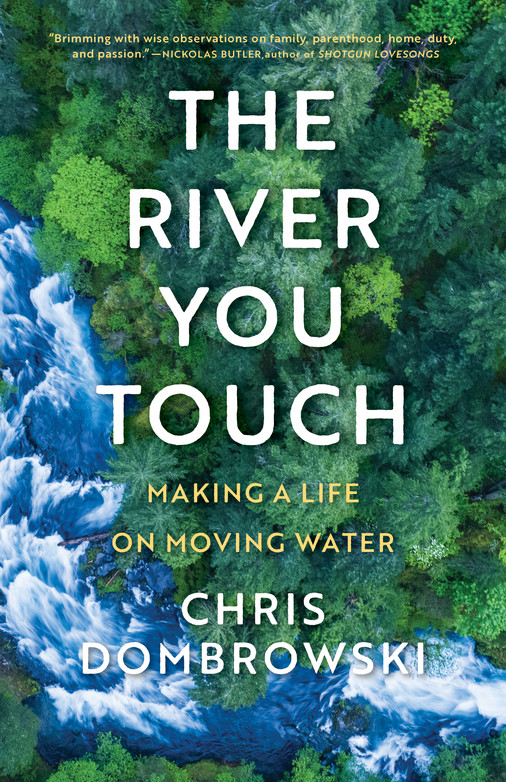Oh how much I loved The River You Touch on audiobook! I’m totally smitten with this book….it was like magic. Read on to find out what made me love it so much!
Summary
“We are matter and long to be received by an Earth that conceived us, which accepts and reconstitutes us, its children, each of us, without exception, every one. The journey is long, and then we start homeward, fathomless as to what home might make of us.” —from The River You Touch
When Chris Dombrowski burst onto the literary scene with Body of Water, the book was acclaimed as “a classic” (Jim Harrison) and its author compared with John McPhee. Dombrowski begins the highly anticipated The River You Touch with a question as timely as it is profound: “What does a meaningful, mindful, sustainable inhabitance on this small planet look like in the anthropocene?”
He answers this fundamental question of our time initially by listening lovingly to rivers and the land they pulse through in his adopted home of Montana. Transplants from the post-industrial Midwest, he and his partner, Mary, assemble a life based precariously on her income as a schoolteacher, his as a poet and fly-fishing guide. Before long, their first child arrives, followed soon after by two more, all “free beings in whom flourishes an essential kind of knowing […], whose capacity for wonder may be the beacon by which we see ourselves through this dark epoch.” And around the young family circles a community of friends—river-rafting guides and conservationists, climbers and wildlife biologists—who seek to cultivate a way of living in place that moves beyond the mythologized West of appropriation and extraction.
Moving seamlessly from the quotidian—diapers, the mortgage, a threadbare bank account—to the metaphysical—time, memory, how to live a life of integrity—Dombrowski illuminates the experience of fatherhood with intimacy and grace. Spending time in wild places with their children, he learns that their youthful sense of wonder at the beauty and connectivity of the more-than-human world is not naivete to be shed, but rather wisdom most of us lose along the way—wisdom that is essential for the possibility of transformation.
My Review
I stumbled upon The River You Touch because it was published by my local publisher, Milkweed. This is the same publisher that gave us The Seed Keeper in 2021, which cemented itself as one of my favorite books of all time, and of course is on my list of 2021 favorites. I believe I had seen the book cover around before, but got an email about the new audiobook version. The email included a sample of the audiobook, so I went ahead a pressed play…and then immediately put it on hold at my library.
The reader of the audiobook, Jeffrey Foucault, has the most wonderful, calming voice. He also plays guitar in some of the transitions, which just makes the audiobook such an experience. He’s actually in the book, too – he’s a friend of Dombrowski.
Anyway, the actual story was really captivating for me. Chris’s stories of being in nature on his own and, later, with his kids, were gorgeously written and narrated. I don’t know what it is about nature stories for me, because I live in the city and don’t do enough connecting with nature, but they just really do it for me. Ya know? I had the same reaction to Wild by Cheryl Strayed.
The book is a memoir of much of Chris’s life, including how and when he met his wife, how his kids came to be in the world, and friends and family he loved and lost along the way. It’s a story of a life built around nature, and humans’ roles in it.
If you like memoir, nature, and a person’s role in contributing to it, you’ll love this book. I have to admit, I was sad when the audiobook was over! It’s one I’d love to own and listen to multiple times. I did, in fact, immediately purchase the book to lend out to friends and family, then keep on my shelf.
All the stars.
Bookshop.org | Amazon | Goodreads

